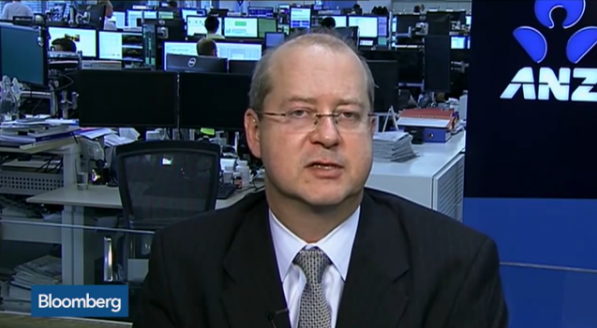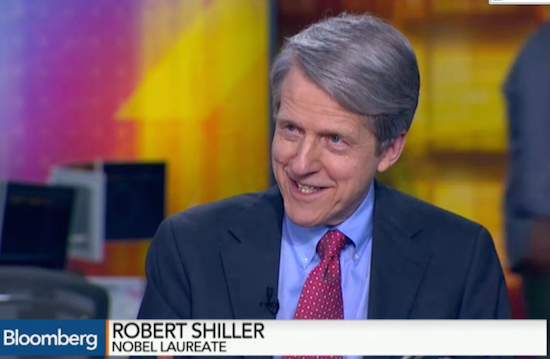Appearing on Yahoo! Finance, Peter Schiff underscored that the Federal Reserve has been bluffing about raising interest rates. In fact, they will continue to bluff for as long as possible until they’re forced to deal with a deflating asset bubble. He also pointed out the arbitrariness of the Fed’s supposed goal posts: previously they had said they would raise rates when unemployment officially got below 6.5%, it is now at 5.5% and they want to keep waiting. Peter said the Fed has the same confused attitude about inflation:
I think they’re going to be just as tolerant on inflation when inflation is 2.5 or 3%. They’re still not going to raise rates, but believe me, when it’s officially at 3%, it’s going to be a lot higher than that, and consumers are really going to be feeling the pain.”
Laurence Kotlikoff, Professor of Economics at Boston University, appeared before Congress last month and called them out on phony accounting. He told Greg Hunter of USAWatchdog that despite his best attempts, he could not make senators see how the fiscal situation of the country is not as rosy as official numbers would have us believe. In his interview with Hunter, Kotlikoff talked a lot about social security, but he ultimately underscores what Peter Schiff has been saying for a long time: another financial collapse is coming.
Some of Kotlikoff’s key points include:
- The current deficit is actually $5 trillion, not the $500 million Congress claims.
- The entire government is in terrible fiscal shape, with a true debt load of over $200 trillion.
- The US is risking the same path as Argentina with its out-of-control money creation, which dropped it from the 5th largest GDP in the world to the status of a developing country.
- Real wages and the savings rate are extremely low. In the 1950s, Americans saved about 15% of their income, compared to just 4% today.
- Long-term Treasury bonds are extremely risky, because the Federal Reserve won’t be able to keep interest rates suppressed forever. Eventually, true inflation will ruin banks that relied too heavily on bonds.
Peter Schiff has been making the rounds of the financial media this week, warning that the Federal Reserve has no intention of raising interest rates. Fox Business moved on from this topic and asked Peter to defend the latest weakness in the gold price. Peter noted that gold has risen 5-fold in the last decade — far outpacing the stock market. Every investment will see a few down years inside a larger trend, and investors need to keep that trend in mind. Official inflation might be low now, but there’s clearly a bubble in asset prices. When the Fed inevitably fails to maintain this bubble, inflation will spread to the rest of the economy.
The stock market is inflated, the bond market is inflated, the real estate market is inflated. But all this represents claims to wealth, when actually people want to convert their claims to real stuff, when they want to spend their gains. That’s when you really see prices surging for consumer goods and that’s when it finally shows up in official measures of inflation.”
The Federal Reserve removed “patient” from its policy statement and the media exploded with speculation on what the move might mean. Peter Schiff appeared on a panel discussion on Canada’s Business News Network to address the idea that removing the word means the Fed intends to raise rates. The discussion turned into a lively debate about the real condition of the American economy.
Peter Schiff is one of the only voices warning that the Federal Reserve is going to start a new round of quantitative easing instead of raising rates. You can add well-known investor and analyst Jim Grant to the list of contrarian economists. Yesterday, Grant told CNBC that the Federal Reserve will revert to its worn-out policy of quantitative easing instead of a rate hike.
Grant went on to paint a sobering picture of the American economy. He argues that the Fed’s policy of heavy-handed intervention has, unfortunately, entered the bloodstream of mainline politics. Washington might try to manipulate the economy by decree, but at the end of the day, it can’t change the economic reality that free exchange doesn’t depend on government oversight.
Peter Schiff responds to the hubbub surrounding the Federal Reserve’s dropping of the word “patient” from its policy statement. Janet Yellen’s diction is meaningless, but if you look closely it also reveals that the Fed is far more dovish than people think. The Fed can play all the mind games it wants with the markets, but it can’t stop the inevitable crash of the US dollar. Remember — when you know how the game is going to end, play for the endgame.
Bloomberg hosted ANZ Chief Economist Warren Hogan to discuss Asian demand for gold. Hogan co-authored a new study showing that gold demand in Asia is poised to rise substantially. As supply constraints lift and incomes in the East rise, consumers in countries like China and India will continue to buy record amounts of gold. More importantly, Hogan believes that China may be stockpiling gold as part of a maneuver to un-peg their currency from the dollar.
The first thing we need to understand is that we don’t actually get regular reporting on how much gold the PBOC holds. At last count, a few years ago, it was about a thousand tons. We will be due to get an update in the next year or so. China’s clearly got a gold strategy as a broad view… Whether or not it’s the central bank that is buying the gold or it’s in the broader community is not necessarily clear. But the reality is the renminbi moves towards floating and is a major global currency.”
Bloomberg had a roundtable discussion with Nobel Laureate Robert Shiller, author of Irrational Exuberance, about keeping past economic disasters in mind. In particular, they discussed the worry that the stock market is on the verge of another 1937 and a 50% correction.
1937 was the year that the word ‘recession’ was invented. Did you know that? … It was invented because Franklin Delano Roosevelt wouldn’t call it a ‘depression’. He thought the psychology was horrible, just horrible.”
Shiller doesn’t believe harking back to the Great Depression is simply fear mongering, because we live in a “black swan” world. Economic events are unpredictable, and learning from the past is a practical way to prepare for the unknown. Investors might want to step away from the fast-paced world of speculation and take a look at the bigger picture.
Last week, we showed that stocks are currently at a peak similar to the one that occurred just before the Great Depression. To analysts like Shiller and Peter Schiff, it’s becoming increasingly apparent that the economy may be on the edge of another major recession.
The financial media are obsessed with whether or not the Federal Reserve is going to remove the word “patient” from its policy statement concerning an interest rate hike. CNBC asked Peter Schiff for his take, and he told them that the Fed’s statement is meaningless — the Fed can’t raise rates without pushing the United States economy into recession. The host and floor traders insisted that this bubble economy is different, and Peter agreed. This time around, low oil prices aren’t translating into strong consumer spending and the government is in far more debt than the last time it successfully raised rates. He fully expects another round of quantitative easing in the next year.
In a long interview with Gordon T. Long, Managing Director of the Lindsey Group Peter Boockvar warns that the Federal Reserve has been creating artificial bubbles for years. In fact, we’re now facing the third bubble in 15 years. The mainstream news claims we’re not in a bubble because “things are different this time.” But Boockvar echoes exactly what Peter Schiff has been saying — of course this bubble looks different. All of the others looked different too until they popped. He also shares some fundamental gold investment advice: watching short-term price movements is useless. Once people stop placing trust in the Fed, gold has the potential to skyrocket in value.





